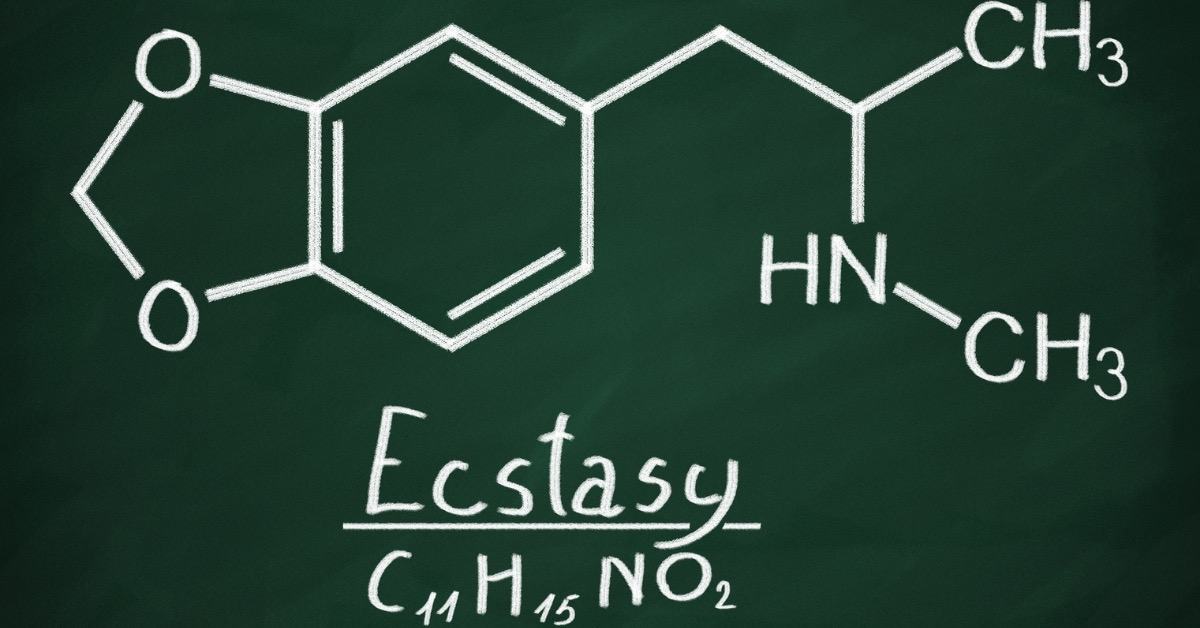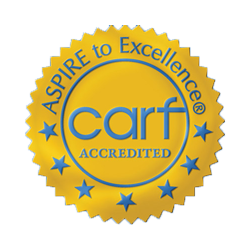
MDMA, often known as "Ecstasy" is a synthetic "club drug" that works as both a stimulant and hallucinogen. Ecstasy's effects can have both short-term and long-term consequences, with some severe cases leading to ecstasy addiction.
If you've discovered that someone you care about is addicted to ecstasy, it's crucial to get help as soon as possible.
Click to jump to content:
Ecstasy Addiction Treatment at Renaissance Recovery Center
Intensive Outpatient Program (IOP)
Our Intensive Outpatient Program (IOP) is customized for each individual. Your team of professional addiction recovery specialists will work with you to design a program that fits your specific personal needs. The program can be tailored to meet your needs in overcoming ecstasy addiction as well as provide among today’s best treatment methods for other needs. For example, your program can also treat depression, borderline personality disorder, or other conditions.
We’re focused on helping you achieve long-term recovery. That may involve helping you work through combined issues of trauma, grief, anger, depression. We also help our clients overcome the abiding sense of guilt and shame that so many people in recovery are afflicted with.
Renaissance outpatient treatment incorporates physical, psychological, and emotional healthcare strategies. We help you develop the tools you need for lasting success in your recovery. Further, we focus on building critical support systems around you, including your therapeutic team, friends, and family.
General Outpatient Program (GOP)
When you’ve finished your treatment program, you’ve reached a major milestone in your life. You’re to be congratulated! Now, you’re ready to begin practicing the skills you’ve built through your rehab therapy, with your whole support system to help you.
You made the big decision and you’ve taken control of your life. You’ve completed your treatment program, and now you can move on to a new phase of your life with an abundance of professional guidance and support.
The Renaissance outpatient substance abuse programs are designed to carry people through the final stages of recovery. This phase of treatment tapers off the levels of previously more intensive therapeutic processes and focuses on methods of helping you maintain your sobriety in the real world long-term.
Our GOP treatment services are normally recommended after each person completes an IOP and/or PHP treatment process. You’ll be able to continue working with your rehab therapists during your GOP recovery phase.
Renaissance provides options to customize your GOP plan for you. When your rehab program is completed, you’ll be ready to re-enter life with solid new support systems. You’ll also be equipped with new life skills, job skills (if needed), and the personal tools to manage triggers and situations to help you live a happy and meaningful life free from drug abuse.
The ecstasy addiction rehab aftercare program also involves your family, if possible, helping you build new shared relationships with your loved ones, without substance abuse.
Partial Hospital Program (PHP)
Our day treatment program is designed to help people more comfortably make the transition from residential treatment. This part of the recovery program involves partial hospitalization to help people who are in earlier stages of overcoming ecstasy’s effect on the body and living without substance abuse. If a dual diagnosis is needed, we can also help you with controlling mental disorders, if needed. The Renaissance PHP is 4 to 6 hours per day. The program is personalized for you to include various one-on-one therapeutic services and group sessions each week.
A PHP is more intensive than an outpatient program, but it differs from a residential rehab program. Instead of living in a residential treatment facility, people in a PHP recovery process go home every night.
Renaissance day treatment is a comprehensive rehab program customized to meet each client’s personal needs. The day treatment steps are designed to help each person move forward with lots of support from their therapeutic team. The goal of PHP treatment is to help an individual make progress toward entering the outpatient program phase of their treatment.
The day treatment program is focused on addiction recovery and mental health improvement, as applicable. The treatment plan is designed to work on treating the underlying causes of substance abuse. Therapists and clients work on self-esteem building, learning powerful life skills, and making positive changes that promote sustained recovery.

What is Ecstasy?
The scientific name for ecstasy is much more difficult to pronounce:
3,4-Methylenedioxymethamphetamine (or MDMA). For our purposes, we’ll stick to ecstasy. MDMA is an amphetamine-derived psychoactive substance that gives users a feeling of euphoria, boosts energy levels, and mimics the effects of other psychedelics. It's most often taken in a pill form, but it may also be snorted or ingested in liquid form.
MDMA is also known as "E," "Molly," or even the less popular "XTC." MDMA initially caught on in the rave culture and is frequently misused by teenagers and young adults.
Street Names for Ecstasy
Ecstasy is most often sold as a pill or tablet in various colors, sometimes with a logo imprinted on it. Ecstasy tablets in the form of molly (powder or crystallized form) are also available. The following are some of the most frequent names and street terms for MDMA:
- X, E, or XTC
- Adam
- Beans
- Candy
- Dancing Shoes
- Disco Biscuits
- Doves
- E-bomb
- Egg Rolls
- Happy Pill
- Hug Drug
- Love Drug
- Malcolm (or Malcolm X)
- Molly
- Scooby Snacks
- Smartees
- Sweets
- Skittles
- Thizz
- Vitamin E or Vitamin X
- Vowels
Common Ecstasy Side Effects May Include
Ecstasy has been shown to have effects that differ from those of other drugs in that it (artificially) increases feelings of empathy, love, and sexual arousal. People on ecstasy often desire to communicate their feelings of great love and joy. Sensitivity to touch, sight, sound, and smell are all enhanced during euphoria. Ecstasy is often taken at "raves" or all-night dance parties. After being consumed, MDMA's effects can persist for 3-6 hours.
MDMA works on three brain chemicals: Dopamine, Norepinephrine, and serotonins.
Dopamine: It promotes euphoria and acts as a reward in the pleasure system to encourage activities.
Norepinephrine: It raises one's heart rate and blood pressure, which is harmful for individuals with heart disease.
Serotonin: This is an extremely powerful drug that affects mood, hunger, sleep, and other activities. It also activates hormones that influence sexual arousal and trust; the massive production of serotonin responsible for the emotional closeness, elevated mood, and empathy experienced by people who use MDMA
Signs of Ecstasy Addiction
In general, there are several psychosocial indicators of a substance use disorder (SUD) and/or addiction. Look for the following common symptoms if you believe you or someone you know may be addicted to ecstasy:
- Losing friends or social networks is a common occurrence.
- Inability to fulfill personal duties
- Keeping your distance from relatives or friends who don't use MDMA
- Dishonesty, stealing, and other deceptive actions
- Financial or legal difficulties
- Despite the fact that you are aware of the negative effects of taking methamphetamines, you continue to take it.
- Cognitive impairment or serious health issues
Short-Term and Long-Term Effects of Ecstasy
MDMA is misused by many people for its intended benefits, but it also possesses a variety of undesirable and hazardous consequences. The chemical MDMA alters neurotransmitters in the brain, resulting in the euphoric or "high" effects. The combination of MDMA and alcohol can have a significant impact on one's body temperature. If one is not adequately hydrated, MDMA's stimulation can lead to hyperthermia, or a rise in body temperature that may be harmful. According to the studies of National Institute on Drug Abuse, Ecstasy releases norepinephrine, which is probably the reason for the boosted heart rate and blood pressure. MDMA has been shown to induce heart failure in certain individuals.
The short-term consequences of Ecstasy addiction include:
- Nausea
- Muscle cramping
- Clenching of the jaw or grinding
- Blurred vision
- Dehydration
- Memory loss
- Chills or sweating
- Heart palpitations
- Tremors
MDMA can disrupt the body's temperature regulation and chronic use can result in liver, kidney, heart failure, or even death. MDMA can also cause a variety of additional health problems if used for an extended period of time.
Long-term effects of Ecstasy addiction may cause:
- Neuro-toxicity
- Schizophrenia
- Seizure disorders
- Hallucinogen-induced anxiety disorder
- Migraines
- Psychosis
- Depression
- Communicable diseases
- Accidents/suicide
Ecstasy withdrawal symptoms include:
- Fatigue
- Diminished appetite
- Depression
- Lack of focus
Getting Treatment From the Best Addiction Rehab for Ecstasy Abuse
Although ecstasy is not discussed as heavily as other addictive substances, such as alcohol, opioids, or cocaine, it is still crucial for an ecstasy users to get the help they need to stop using it before it takes a toll on their brain.
At Renaissance Recovery Center, we believe that ecstasy can be treated in a similar way that we deal with other substances through a multifaceted program that works to help an addict find medical, psychological, emotional, spiritual, and behavioral recovery. To do this, we must cater to the needs of each individual uniquely.










